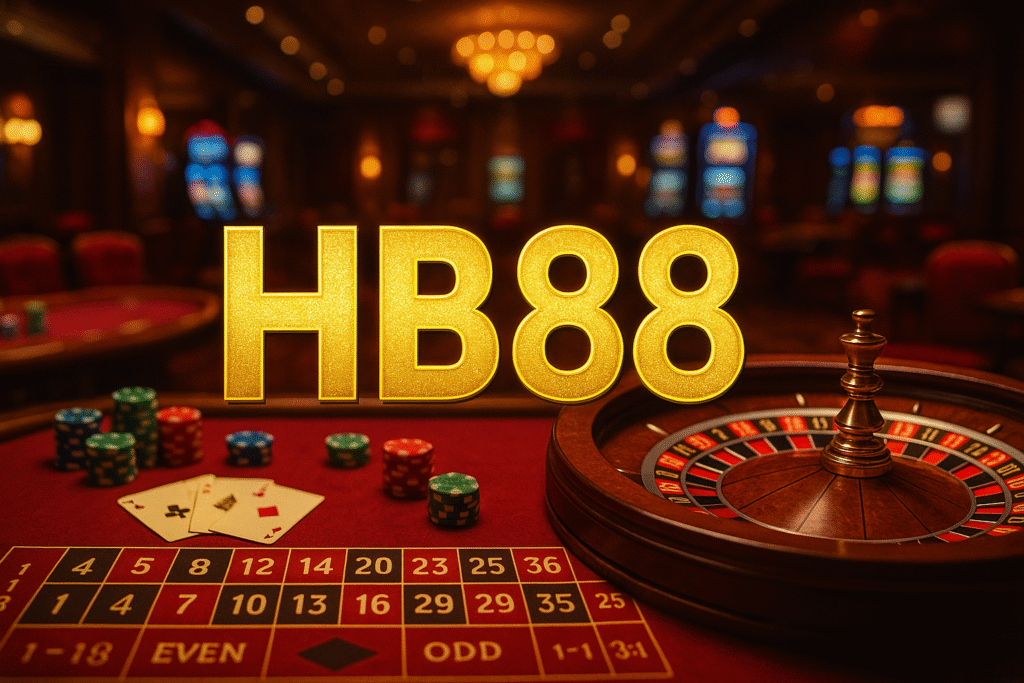
Have you ever wondered why casino games are so engaging? Whether you’re spinning slots or betting on roulette, there’s a powerful combination of psychology and design that keeps players coming back for more. Top platforms like HB888 leverage these principles to create experiences that are exciting, immersive, and hard to resist — but understanding how it all works can help you play smarter and with more awareness.
One of the core psychological factors đăng nhập HB88 behind casino games is the concept of intermittent reinforcement. Unlike regular rewards, which are predictable and consistent, casino games offer random and unexpected outcomes. This type of reward schedule is proven to be the most addictive, as it keeps the brain in a heightened state of anticipation. Every spin or card draw could be a win, and that uncertainty is incredibly compelling.
Sound and visuals also play a significant role. Bright lights, spinning reels, and celebratory music are all designed to trigger dopamine — the brain’s “feel-good” chemical. Even small wins are celebrated with fanfare, creating the illusion of success and encouraging continued play. HB888 and similar platforms use high-quality graphics and sound design to enhance this effect, turning every session into a stimulating experience.
Then there’s the concept of loss aversion, which means we tend to fear losses more than we value gains. In a casino setting, this translates to players chasing losses, believing that a win must be around the corner. This emotional response can cloud judgment and lead to riskier behavior. Being aware of this bias is essential for maintaining control and avoiding decisions based purely on emotion.
Near-miss outcomes are another psychological trick. Many slot games are programmed to show you two jackpot symbols followed by a third that just misses. This creates the illusion that you were close to winning, triggering a strong urge to try again. Studies show that near-misses activate the same brain regions as actual wins, making them incredibly effective at prolonging gameplay.
Gamification elements like progress bars, levels, and leaderboards also tap into our desire for achievement. Even though casino games are chance-based, platforms often add goals and challenges that make the experience feel more like a game of skill. Earning rewards or unlocking features gives players a sense of progress, even when they’re not winning money.
Many players are also influenced by the “sunk cost fallacy,” which is the tendency to continue investing time or money into something because of what’s already been spent. In casinos, this might look like someone staying at the table or continuing to spin a slot because they’ve already put in significant time or money, hoping that persistence will eventually pay off.
Social dynamics play a role too. Live dealer games, chat functions, and multiplayer tables create a sense of community. Engaging with other players or the dealer makes the experience more personal and enjoyable, especially for those who miss the social aspect of land-based casinos.
Importantly, none of these psychological tools are inherently negative. They’re part of what makes gaming fun and immersive. However, they can lead to problematic behavior if players aren’t mindful. Setting time and spending limits, taking breaks, and treating casino games as entertainment — not income — are all healthy habits.
In summary, casino games are expertly crafted to engage your senses, emotions, and brain chemistry. By understanding the psychology behind why you play, you can make more informed decisions and enjoy your experience responsibly. Platforms like HB888 offer plenty of ways to have fun — just make sure you’re in control of the experience, not the other way around.